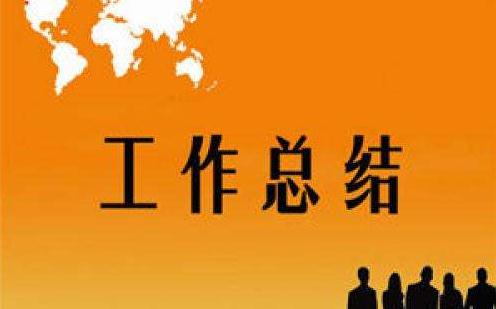下面是小编为大家整理的新中国初期爱国主义教育与中小学历史教学研究(1949-1956)(全文完整),供大家参考。

单 位 代 码1 0 4 7 6| 学号 丁1 5 1 1 2 8 2 0 3 8 分 类 号G 4 2 7 W r ? H % ^ 硕士学 位 论 文 ( 专 业 学 位 :
) 新 中 国 初 期 的 爱 国 主 义 教 育 与 中 小 学 历 史 教 学 研 究 ( 1 9 . 4 9-1 9 5 6 ) 专 业 学 位 领 域:学 科 教 学 ( 历 史)
专 业 学 位 类 别:教 育 硕 士 申 请 人 :
刘 楚 然 指 导 教 师:
王 记 录?教 授 二 〇— b年 五 月
THE STUDY OF
PATRIOTISM EDUCATION
AND
HISTORY TEACHING IN PRIMARY AND MIDDLE SCHOOLS
FROM 1949 TO 1956
A Dissertation Submitted to
the Graduate School of Henan Normal University
in Partial Fulfillment of the Requirements
for the Degree of Master of Education
By:Liu Churan Supervisor:
prof.Wang
Jilu May,2017
- I -
摘
要 中小学阶段是广大青少年获取知识与学习能力的关键时期,是人生学习的黄金阶段,同时也被认为是进行教育的最佳时机。同时,这一时期还是人的人生观、价值观、世界观形成的重要时期,这一时期的教育往往能够收到最好的效果。历史课堂作为承载历史知识与民族记忆的重要媒介,是进行爱国主义教育的重要手段。在中小学进行爱国主义教育,对塑造人们的爱国情怀至关重要。新中国建立初期的 1949 到 1956 年,全国开展了广泛的爱国主义教育运动,中小学历史教育也成为其中的重要组成部分。
这一时期爱国主义教育运动的兴起有着深刻的历史背景,既是巩固新生人民政权的需要,也是建设和恢复国民经济、提高人民建设家园热情的必要手段。而在此时的中小学历史教育中,也倡导爱国主义教育,无论是教材的编写、课程的设置,都能够清楚的看到爱国主义教育运动的影响。这一时期的中小学历史教学在贯彻爱国主义教育运动的过程中形成了鲜明的特点:教学思想中贯彻抗美援朝和解放台湾的思想、课标中加入唯物史观和马克思主义教育、教学内容中注重积极正面的爱国材料的选取、历史课堂紧跟着毛泽东思想走。这些都使爱国主义教育运动在中小学历史课堂中得以有效开展,成为激发广大中小学生爱国主义热情的有效手段。但同时,也存在与中小学生认知及学习能力相矛盾的问题,某些方面效果不佳。这一时期中小学历史教学中贯彻爱国主义教育,一方面与历史课程所承载的道德教化作用密不可分,同时也受到国际国内政治环境以及苏联教育的影响。
在新中国建立初期的爱国主义教育运动中,中小学历史教育发挥了重要的作用。中小学历史教育成为在中小学开展爱国主义教育运动的主要途径,爱国主义教育运动在促进青少年爱国主义思想树立的同时也增加了他们学习历史知识的兴趣,两者相互促进,共同实现了在灌输历史知识与提升爱国情操两方面的进步。这也为后来对广大青少年进行爱国主义教育提供了重要的参考,对整个国民爱国情感的养成具有重要的意义。
关键词 :
新中国,过渡时期,中小学历史教学,爱国主义教育
- III - ABSTRACT Primary and secondary schools as the majority of young people to acquire knowledge and learning ability of the key period to become the golden age of life learning, but also considered to be the best time for education. In this period, people"s outlook on life, values, and the formation of an important period of the world view, often at this time the education can receive the best education results. As an important medium for carrying on the historical knowledge and the national memory, the history classroom has become the key stage of the patriotism education. In the early years of the founding of new China, from 1949 to 1956, the country carried out a wide range of patriotic education movement. The rise of the patriotic education movement in this period has a profound historical background, is the need to consolidate the new people"s regime, but also the construction and restoration of the national economy, a necessary means to improve people"s enthusiasm for building homes. In this time, the history education in primary and secondary schools, also permeated with the influence of patriotism education, whether it is the preparation of teaching materials, curriculum settings, can clearly see the impact of the patriotic education movement. On the one hand, it is closely related to the moral education function of history class, and it is also influenced by the international and domestic political environment and the education of the Soviet union. Middle school history education in this period has formed distinct characteristics in the process of carrying out the patriotism education in the sports teaching thought: implement the Korean War and the liberation of Taiwan, the idea of curriculum added historical materialism and Marx"s education, teaching materials, pay attention to positive patriotic history class followed by Chairman Mao, the patriotism to effectively carry out education movement in the history of the middle and primary school class, is an effective way to arouse students patriotism. But at the same time, there is a small problem with the cognitive and learning ability of primary and secondary school students, resulting in the small deviation of the education of patriotism. In the early period of the founding of new China, the history education in primary and secondary schools played an important role. Become the main way to carry out patriotic education movement in primary and middle school history education in middle and primary schools, patriotic education campaigns while promoting youth patriotism thought set are also increasing their knowledge and interest in learning history, both mutual promotion and common achieved in the popularization of history knowledge and improve the synchronization of two aspects of patriotism. It also provides an important reference value for the majority of young people to carry out patriotic education, which is of great significance to the development of the whole nation"s patriotic feelings.
KEYWORDS :New China, Transitional period, History education in primary and secondary schools, Patriotiism Education
- V - 目 录 摘
要 .................................................................... I
ABSTRACT ................................................................ III
目 录 ..................................................................... V
绪
论 .................................................................... 1
一、选题缘起及意义 ......................................................................................................... 1
二、前人研究概述 ............................................................................................................. 3
三、重难点及创新之处 ..................................................................................................... 4
四、研究方法和思路 ......................................................................................................... 5
第一章
爱国主义教育运动的兴起 ............................................ 7
1.1 爱国主义教育运动兴起的政治背景 .......................................................................... 7
1.2 爱国主义教育运动兴起的文化背景 .......................................................................... 8
1.3 爱国主义教育运动兴起的经济建设背景 .................................................................. 9
第二章
中小学历史教学中贯彻爱国主义教育的理论认识 ....................... 11
2.1 史学工作者对中小学历史教学中贯彻爱国主义教育的探讨 ................................ 11
2.2 中小学历史教育与爱国主义思想的培养 ................................................................ 12
2.3 中小学历史教学加强爱国主义教育应该处理几个问题 ........................................ 13
2.3.1 培养具有爱国主义的历史知识渊博的中小学教师 ..................................... 13
2.3.2 加强中小学历史教育与爱国主义教育政策实际结合 ................................. 14
2.3.3 加强理论学习不断总结经验 ......................................................................... 14
第三章
中小学历史教学中贯彻爱国主义教育的内容与方法 ..................... 17
3.1 灌输抗美援朝保家卫国教育 .................................................................................... 17
3.2 向苏联的爱国主义教育学习 .................................................................................... 18
3.3 中小学历史教学中进行爱国主义教育的方法 ........................................................ 18
3.3.1 讲述法 ............................................................................................................. 19
3.3.2 乡土教学法 ..................................................................................................... 19
3.3.3 结合课外活动教学法 ..................................................................................... 20
第四章
建国初期中小学历史教育贯彻爱国主义的特点及问题 ................... 23
- VI - 4.1 建国初期中小学历史教育贯彻爱国主义的特点 .................................................... 23
4.1.1 教学思想中贯彻抗美援朝和解放台湾的思想 ............................................. 23
4.1.2 课标中加入唯物史观和马克思主义教育 ..................................................... 24
4.1.3 教学内容中注重积极正面爱国材料 ............................................................. 25
4.1.4 历史课堂紧跟着毛主席思想走 ..................................................................... 26
4.2 建国初期中小学历史教育贯彻爱国主义中存在的问题 ........................................ 27
结
语 ................................................................... 29
参考文献 ................................................................. 31
致
谢 ................................................................... 35
- 1 - 绪
论 一、选题缘起及意义 1949 年 10 月 1 日,在世界的东方,诞生了中华人民共和国,中国历史翻开了新的篇章。
本文确定的研究范围是建国初期,具体来讲,是 1949 到 1956 年,这 7 年也称为过渡时期,是中国由新民主主义社会向社会主义社会转变的重要时期。这个转变,不仅是新中国历史的转折,更是中国教育的重大转变。
建国初期兴起了一场爱国主义教育运动。在政策方面,爱国主义教育是建国初期最突出的教育主题,1949 年 11 月 1 日,中央人民政府教育部成立。毛泽东明确指出:抓方针,抓政策。因此,在《共同纲领》中规定当时新中国教育的政策。其中将新中国的教育性质规定为新民主主义的教育,将教育任务明确为提高人民文化水平,培养国家建设人才,肃清封建的、买办的、法西斯主义的思想,发展为人民服务的思想。很明显,当时教育的任务是人民的教育和反封建反法西斯的教育,建设属于无产阶级的爱国爱人民的教育。在实践方面,以爱国主义为中心,在毛泽东和党中央领导全国人民开展如抗美援朝、土地改革、镇压反革命、三反五反等运动的同时,开展爱国革命运动。“在抗美援朝运动中,各级学校普遍进行了爱国主义教育,批判了亲美、崇美、恐美的思想,对知识分子增强民族自尊心和自信心,转变世界观有着极大的作用。在三反、五反运动中,广大师生进一步提高了觉悟,划清了敌我界限,批判了资产阶级思”。① 毛泽东旨在改造知识分子,让他们参加革命实践,在改革与革命中接受无产阶级爱国教育。这也和毛泽东早年的理论体系相...
扩展阅读文章
推荐阅读文章
77范文网 https://www.hanjia777.com
Copyright © 2015-2025 . 77范文网 版权所有
Powered by 77范文网 © All Rights Reserved. 备案号:粤ICP备15071480号-27